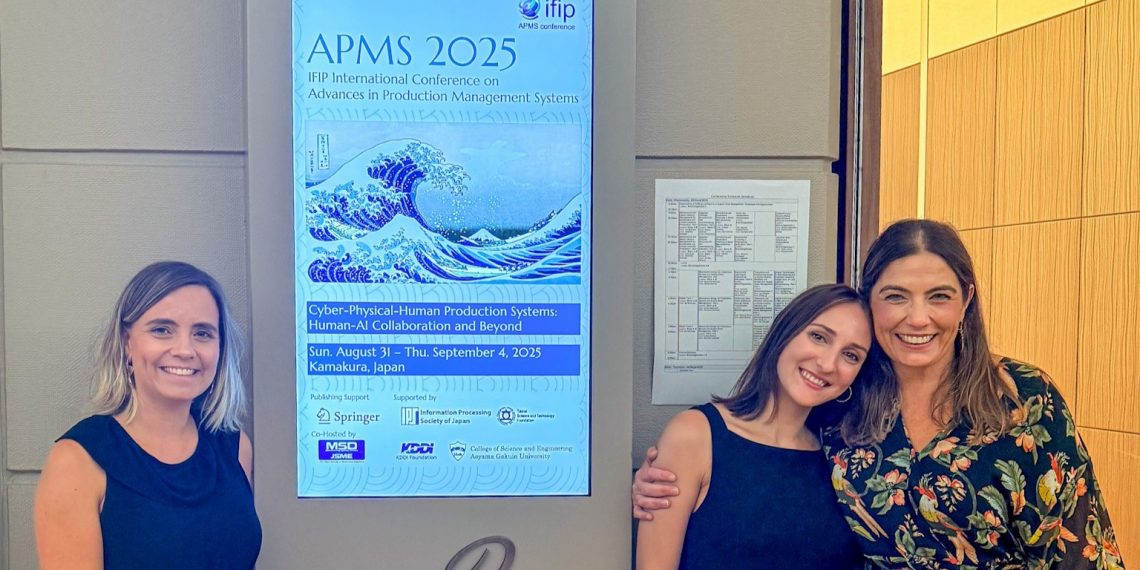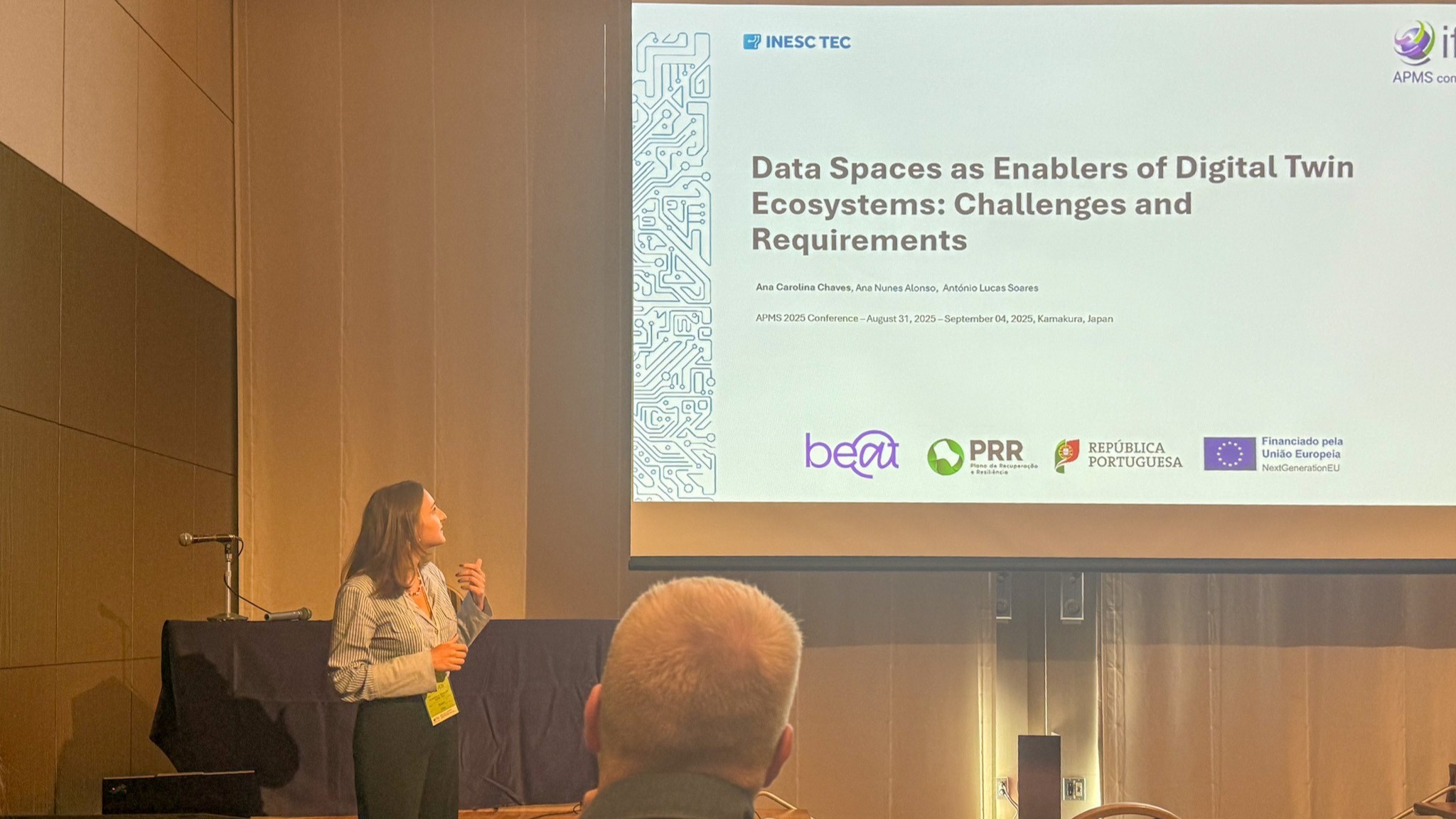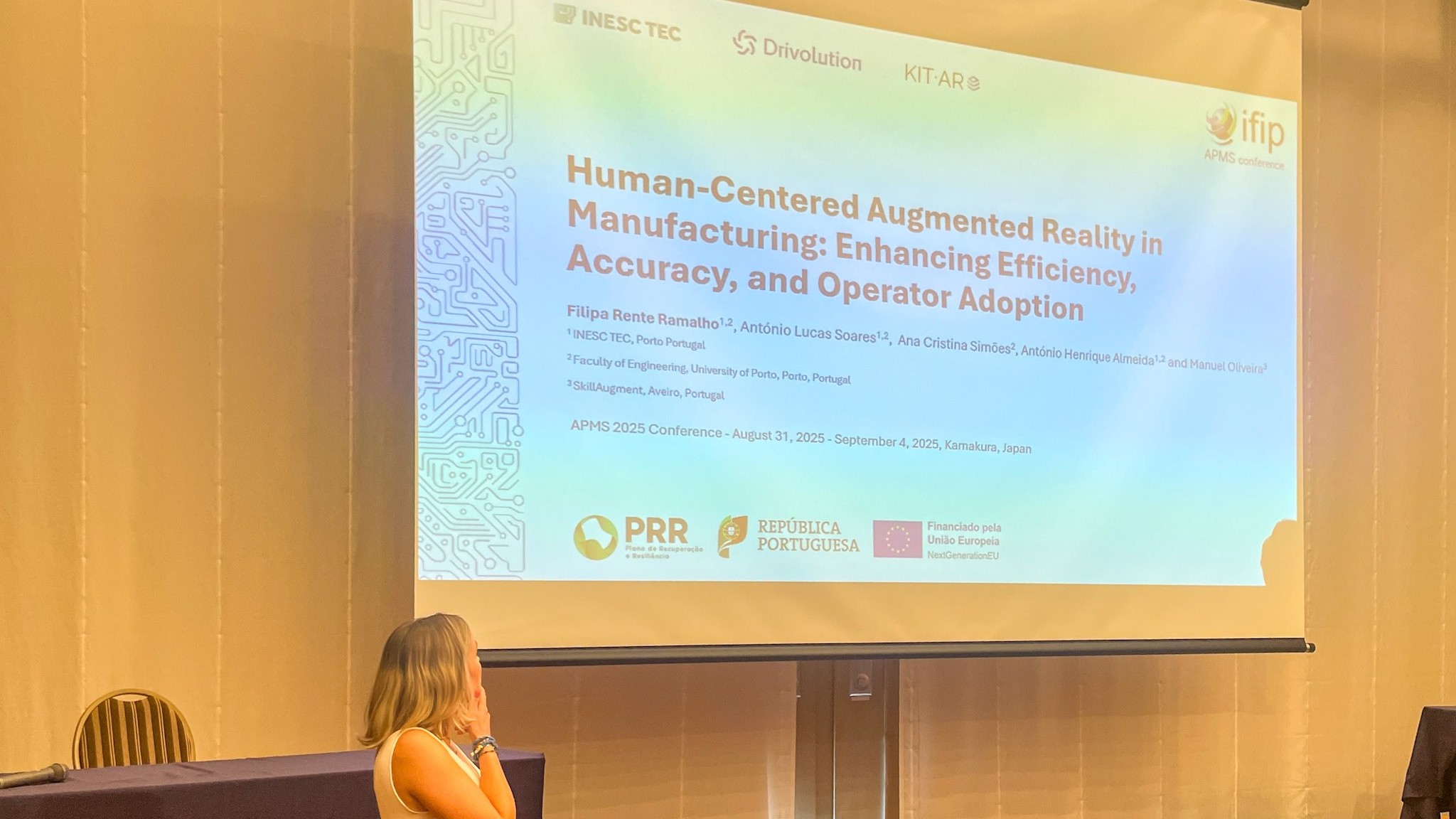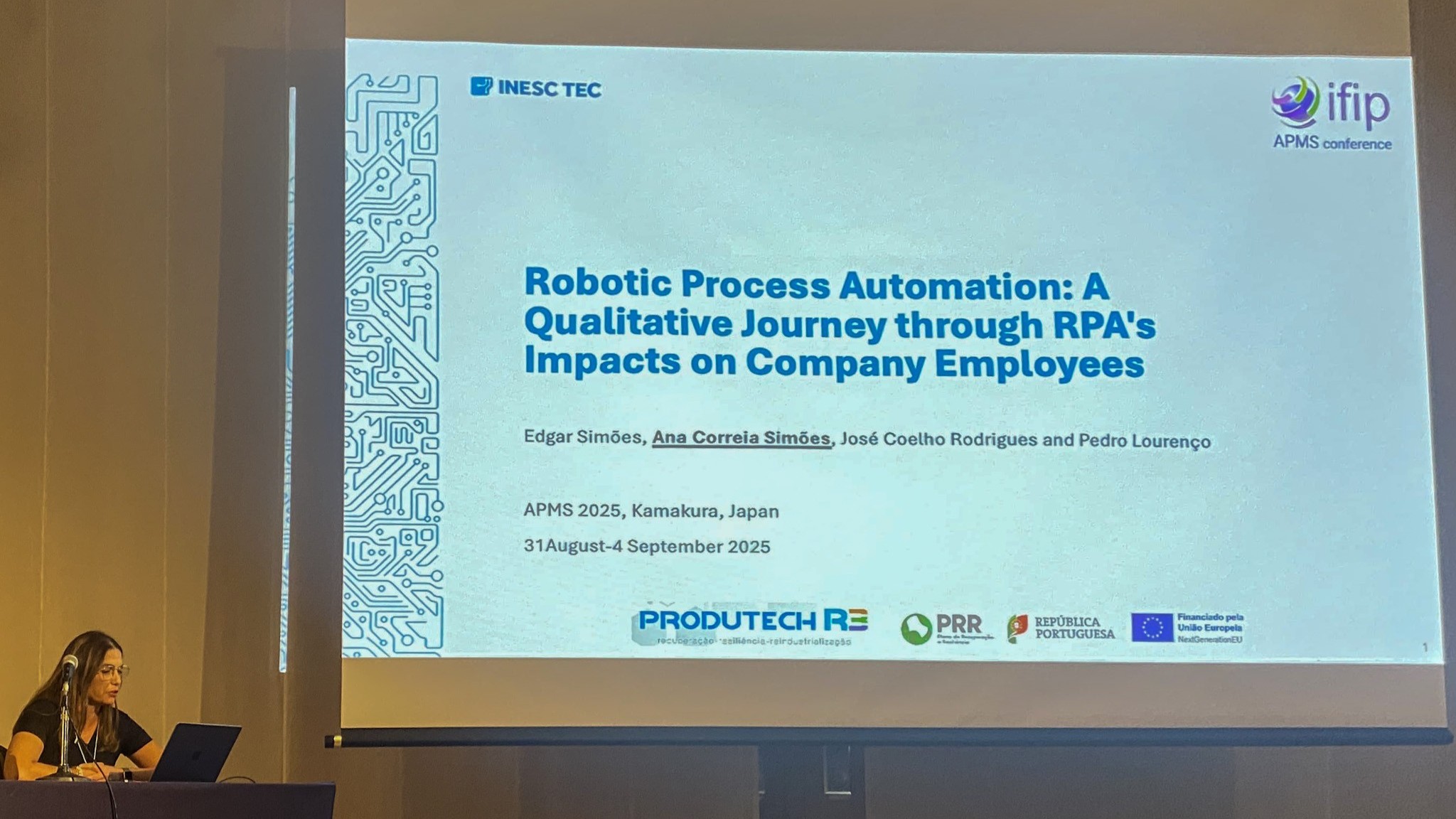Drivolution, Bioeconomy BE@T, and Produtech_R3: these were the three Mobilising Agendas from Portugal’s Recovery and Resilience Plan (PRR) that INESC TEC presented at the APMS 2025 International Conference on Advances in Production Management Systems, held in Kamakura (Japan).
INESC TEC researchers Filipa Ramalho, Ana Carolina Chaves, and Ana Simões (Centre for Industrial Engineering and Management) took part in APMS (IFIP WG 5.7 International Conference on Advances in Production Management Systems) – one of the world’s leading events bringing together academia and industry representatives to discuss advances in production systems, logistics, and digital transformation.
The researchers presented scientific papers supporting the work developed within the scope of different PRR Mobilising Agendas. Regarding the Drivolution Agenda, specifically in the “Digital Lean Augmentation of Shopfloor Worker” initiative, Filipa Ramalho presented the paper Human-Centered Augmented Reality in Manufacturing: Enhancing Efficiency, Accuracy, and Operator Adoption, co-authored with the company Skill Augment. The study introduces a user-centred Augmented Reality solution for quality control in an automotive production line. The Drivolution Agenda promotes the transition to the “factory of the future”, focusing on digitalisation, sustainability, and technological innovation in Portugal’s automotive and industrial sectors.
Ana Carolina Chaves, representing the Bioeconomy BE@T Agenda, presented Data Spaces as Enablers of Digital Twin Ecosystems: Challenges and Requirements. This research explores how data spaces can enable digital twin ecosystems by addressing key requirements such as interoperability, governance, and data management. The BE@T Agenda aims to transform Portugal’s textile and clothing industry into a more innovative, circular, and sustainable value chain, using bio-based materials, advanced production processes, and circular business models.
Meanwhile, Ana Simões presented Robotic Process Automation: A Qualitative Journey Through RPA’s Impacts on Company Employees, co-authored with the Kaizen Institute. Developed under the PRODUTECH R3 Agenda, the study analyses the impact of Robotic Process Automation (RPA) on employees and corporate governance models – a topic of growing importance in the digital transformation era. The PRODUTECH R3 Agenda seeks to reinforce Portugal’s manufacturing technologies sector, supporting digital and green transitions, developing new products and services, supporting professional training, and promoting internationalisation.
“The conference was a valuable opportunity to discuss our work with international experts and leading researchers, share insights from Drivolution, BE@T, and PRODUTECH R3, and strengthen our networking within the global scientific and industrial community. Participating in APMS was an excellent chance to exchange ideas, establish new collaborations, and reconnect with long-time colleagues,” the researchers emphasised.
APMS is recognised for the scientific thoroughness, key publications in the prestigious Springer AICT series, and a forward-looking perspective on digitalisation and Industry 5.0 – fostering a global community of excellence.
INESC TEC currently participates in 30 projects funded through Portugal’s Recovery and Resilience Plan. Among them, the Drivolution, BE@T, and PRODUTECH R3 Agendas stand out, with budgets of €50M, €137M, and €167M, and 39, 55, and 108 partners, respectively.
Drivolution and PRODUTECH R3 are Co-financed by Component 5 – Capitalization and Business Innovation, integrated in the Resilience Dimension of the Recovery and Resilience Plan within the scope of the Recovery and Resilience Mechanism (MRR) of the European Union (EU), framed in the Next Generation EU, for the period 2021 – 2026.
BE@T is Co-financed by Component 12 – Promotion of Sustainable Bioeconomy, integrated in the Climate Transition Dimension of the Recovery and Resilience Plan within the scope of the Recovery and Resilience Mechanism (MRR) of the European Union (EU), framed in the Next Generation EU, for the period 2021 – 2026.





 News, current topics, curiosities and so much more about INESC TEC and its community!
News, current topics, curiosities and so much more about INESC TEC and its community!